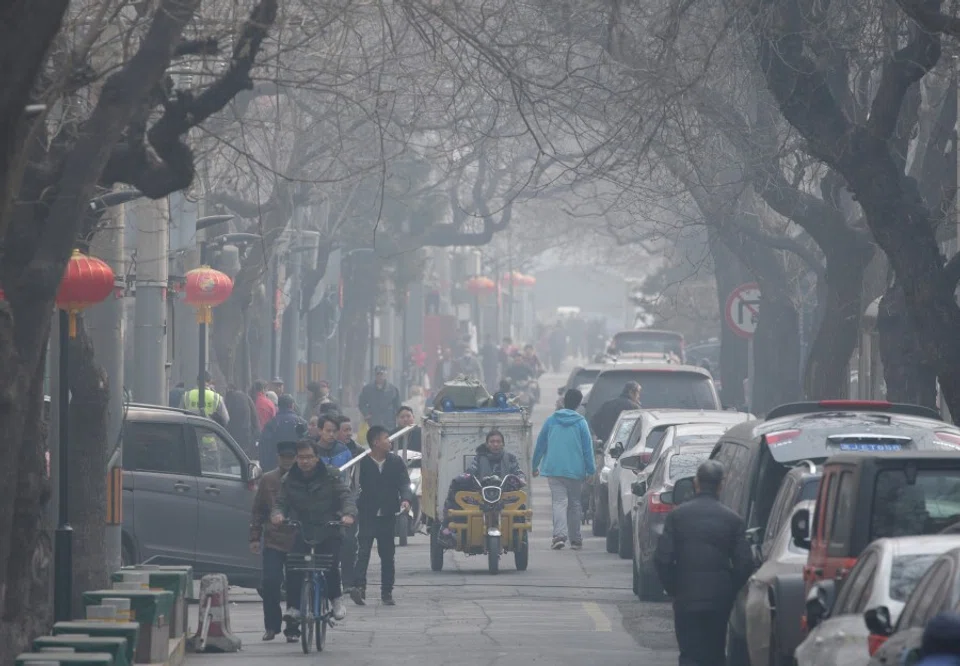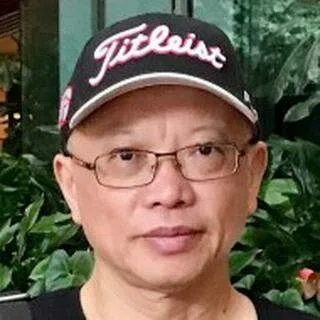The US has never recognised China as a developing country
Despite China identifying itself as a developing country at the WTO, it has been viewed in several quarters as one of the top countries in the world in terms of its economy and national strength. Economics professor Zhu Ying asks: is it any surprise that the US has never recognised China as a developing country?

Recently, the media has been debating over the US allegedly taking away China's status as a developing country. It all started with a notice issued on 10 February by the Office of the United States Trade Representative (USTR), stating that based on its Designations of Developing and Least Developed Countries Under the Countervailing Duty Law list, the US no longer recognises some trade partners as developing countries, leading to some media saying that China has been excluded from the list of developing countries.
The media is wrong to say so. The fact is, the US has never recognised China as a developing country, so there is no question of being excluded to begin with. Articles headlined "US Cancels China's Developing Country Status" are misleading. An article on the Chinese online edition of the Financial Times claims: "In 2001, China joined the World Trade Organisation (WTO) as a developing country. The US is also a WTO member, and so under WTO regulations, China has a right to enjoy the differential treatment accorded to developing countries." This is totally out of line with the facts.
China was not recognised as a developing country when it joined the WTO in 2001.
The one who started the misleading information is US President Donald Trump. On 27 July 2019, Voice of America (VOA) reported that Trump's USTR wanted to stop China and other economies from calling themselves developing countries and getting differential treatment at the WTO. Trump tweeted: "The WTO is BROKEN when the world's RICHEST countries claim to be developing countries to avoid WTO rules and get special treatment. NO more!!!"
The VOA report makes it seem like China's developing country status at the WTO is under threat from the US. But the fact is, China was not recognised as a developing country when it joined the WTO in 2001*. At an interview with US journalists on 17 June 1998, then Chinese president Jiang Zemin raised three principles for China's membership in the WTO, one of which was that China wanted to join as a developing country. But when China officially joined the WTO on 11 December 2001, there was no mention in the documents of China being a developing country.
China keeps saying it is a developing country; that is its self-identification.
That is to say, even though China insisted on calling itself a developing country during the talks to join the WTO, many countries did not accept China's claim, especially the US. On 26 July 2019, the White House released a Memorandum on Reforming Developing-Country Status in the World Trade Organisation, with the line: "The United States has never accepted China's claim to developing-country status..." This official document from the US government tells the truth: the US has never recognised China as a developing country, nor has the WTO.

China keeps saying it is a developing country; that is its self-identification. And although Western countries did not acknowledge China as a developing country during the talks for it to join the WTO, China still managed to gain some differential treatment accorded to developing countries. Out of the WTO's 150 differential terms for developing countries, China managed to gain about 20; however, China has not received any real benefits.
Trump's challenge on China's status as a developing country is one way the US is stopping China's rise in the context of the strategic competition between both sides. The US wants to take away the differential treatment for developing countries that China is getting in all international organisations.
... Trump's attack on China's status as a developing country is a war of words, with no real significance to China.
In February 2019, Trump nominated David Malpass as President of the World Bank. The World Bank had always recognised China as a developing country and granted loans to it. In November 2018, Malpass said the World Bank should end its loans to China, while the Asian Development Bank should reduce its loans to China, and eventually stop them. In 2018, the World Bank defined high-income economies as those with Gross National Income (GNI) per capita of at least US$12,355. That year, China's per capita GNI was US$9,471.
On 15 January 2019, the US submitted to the WTO the document An Undifferentiated WTO: Self-declared Development Status Risks Institutional Irrelevance, and subsequently proposed a draft decision by the General Council asking to withdraw special and differential treatment for many developing member countries. In response to the US challenge, on 15 February, China, India, South Africa, and Venezuela submitted to the WTO a joint document titled The Continued Relevance of Special and Differential Treatment in Favour of Developing Members to Promote Development and Ensure Inclusiveness.
The competition between China and the US in the WTO over developing-country status will not end as the US wants. Developing countries such as China and India are defending their status. The US and EU have separately suggested reforms to the WTO, including changing the WTO's definition of developing countries. The WTO works on unanimous consent - new rules are adopted only with the agreement of all members, which means any member can veto proposed reforms. In turn, this means that WTO reforms on developing-country status, like the Doha Round of trade negotiations, will fail.

The only thing the US has been able to do is to work on its domestic law and implement countervailing duties on goods exported from China to the US. The list of developing countries announced by the USTR on 1 February 2020 also had nothing to do with China. The last list was released in June 1998, before China became a WTO member. At the time, China was not on that list, and countervailing duties were not applicable to a non-market economy like China. Then, after China joined the WTO and the US's countervailing duties became applicable to China after 2007, China could not enjoy the differential treatment the US was giving to its other trade partners.
In summary, Trump's attack on China's status as a developing country is a war of words, with no real significance to China. The US has never recognised China as a developing country, nor given it the requisite differential treatment. The US has implemented countervailing duties on Chinese goods for about 10 years, while the few differential terms for developing countries that China has gained from the WTO are no longer of much significance to China.
Interestingly, the US is actually raising China's international status, but China is not having it. The Chinese authorities have repeatedly stressed that China is a developing country. But within China, there are statements that China's tech economy and national strength have overtaken the US to become the world's number one, and sparked patriotism among the Chinese. The slogan "Amazing China" (厉害了,我的国) is more likely to get the Chinese people excited than criticisms of China. In 2018, the US was stunned when China offered an additional US$60 billion in financing for Africa. Who would be convinced, given such contradictory signals?
Note:
*The WTO website states: "There are no WTO definitions of 'developed' and 'developing' countries. Members announce for themselves whether they are 'developed' or 'developing' countries'. However, other members can challenge the decision of a member to make use of provisions available to developing countries."
Bloomberg reports that according to a USTR notice, the US has narrowed its internal list of developing and least-developed countries to reduce the threshold for triggering a US investigation into whether nations are harming US industries with unfairly subsidised exports.
In doing so, the US removed its special preferences for a list of self-declared developing economies that includes Albania, Argentina, Armenia, Brazil, Bulgaria, China, Colombia, Costa Rica, Georgia, Hong Kong, India, Indonesia, Kazakhstan, the Kyrgyz Republic, Malaysia, Moldova, Montenegro, North Macedonia, Romania, Singapore, South Africa, South Korea, Thailand, Ukraine, and Vietnam.




![[Photos] Fact versus fiction: The portrayal of WWII anti-Japanese martyrs in Taiwan](https://cassette.sphdigital.com.sg/image/thinkchina/3494f8bd481870f7c65b881fd21a3fd733f573f23232376e39c532a2c7593cbc)
